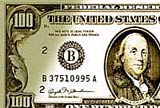Saving Money – Personal Finances
In order to manage your finances well, you must have a sound strategy in saving money. Not having a savings plan puts you at great financial risk for the future because you will have nothing to fall back on. There are many simple things that you can do to start. Here are some suggestions that you can try.
Start to get control over your debt by not relying so much on your credit cards. In fact, you should close most of your charge accounts and use only one or two major ones. Having multiple charge cards from different creditors and stores may expose you to the temptation of charging for things that you really cannot afford to buy. You have to remember that a high credit limit is not the same as having a lot of money. At the end of the month, you still have to have enough money to pay for everything that you have charged. So, to avoid buying things that you cannot afford, do not use your credit card for frivolous purchases.
The Secret to Saving Money
Start putting money aside into a savings account that gives you a good interest rate. You can start with committing a little bit of money every month. Start by saving $20 a week. This may mean cutting out a couple of lunches at a restaurant every week or skipping the morning coffee. Over time, the little money that you can saving money every week will add up to a good amount.
Use a bank that charges the lowest fees. Not all banks charge the same fees for services. For instance, some banks offer free checking, while others do not. You should look over your current bank’s fee structure and see if you are paying for fees that you can avoid. Compare your bank’s services and fee structure with that of other banks. If you see that another bank is offering a better deal, you should switch.
Start Saving Money For Emergencies
Keep track of what you are spending. Create a budget and monitor your income and expenses. Only then can you see exactly what you are spending on. You may find that you are spending way too much on certain things, like eating at a restaurant or buying lunches at work. These and other discretionary spending areas are good places to start cutting back. The money that you do not spend can be put into a saving money on savings account for emergencies.
If you have a lot of credit card debt and are having trouble keeping up with payments, consider contacting a service that can consolidate your debt at a lower interest rate. They can help you negotiate with your creditors and work out a realistic payment plan that leads to paying off your debt. If you do not do this, you risk getting deeper and deeper into debt. The only way to gain control again is to develop a sound payment plan that you can handle, and a reputable debt consolidator can help you do that.
These are simple suggestions that can help you start saving money. The key is to take action now to avoid getting any deeper into debt. Apply these ideas, and you can be on the road to improving your financial health.

